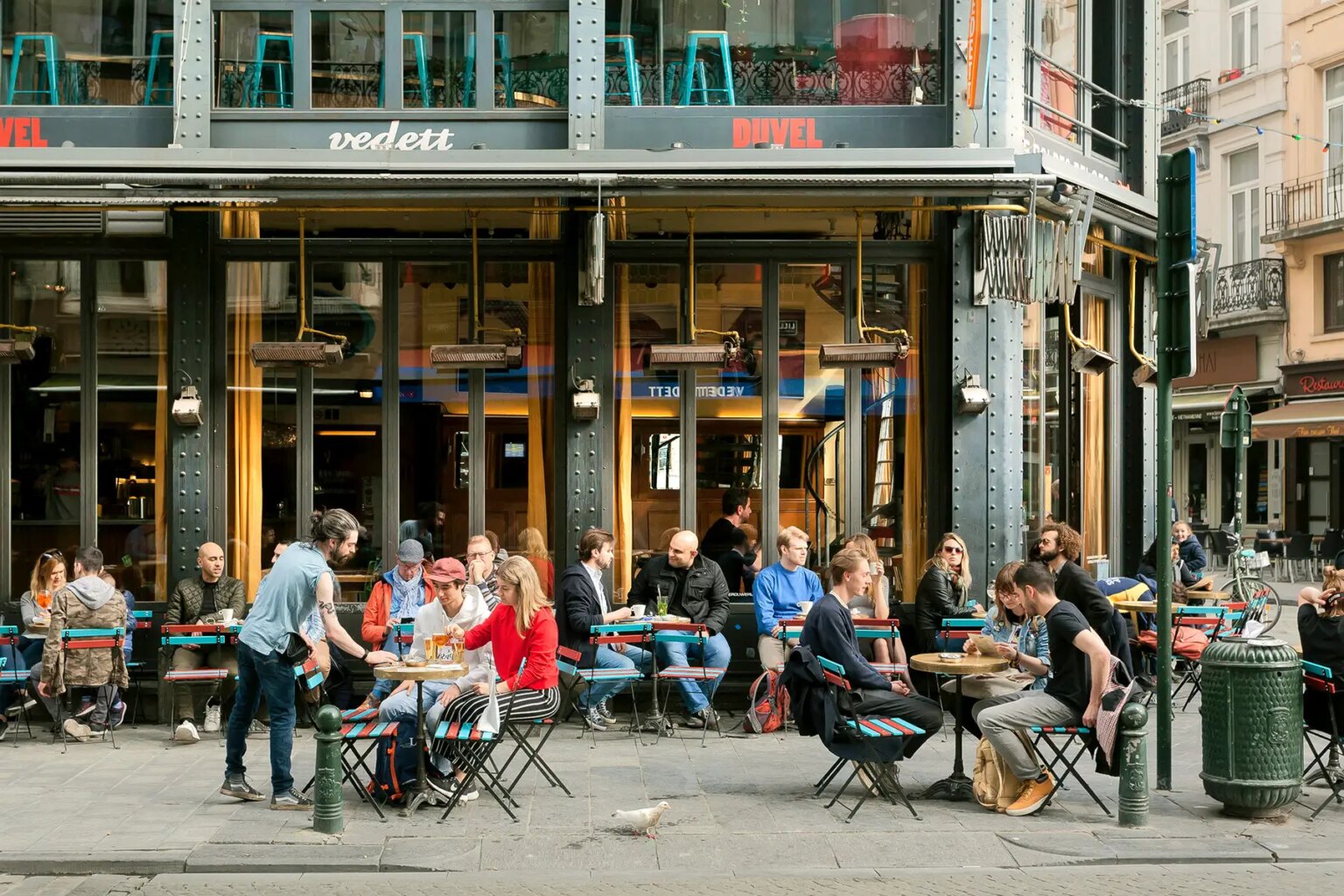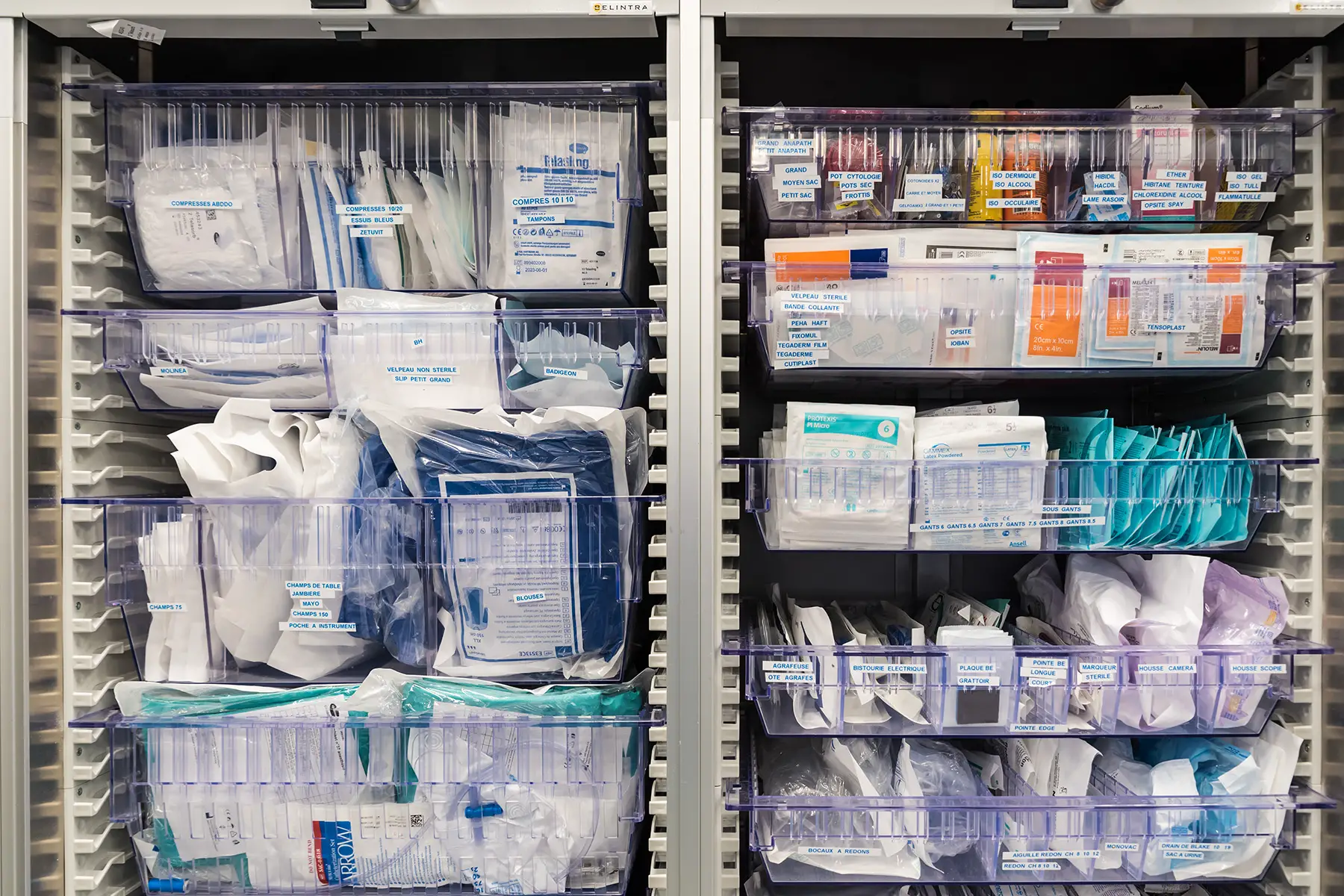As of 2020, expats in Belgium numbered 1.4 million people. That’s about 13% of the population. The big draws are superb and affordable healthcare, high-quality education, and fantastic food and cultural scenes. Belgium is also easily accessible to expat English speakers. Belgian people are friendly and tolerant, and crime rates are low across the country.
Expat life in Belgium must have downsides, surely? Of course. But there are plenty of upsides too. So, we look at both in this article.
- What’s it really like to live in Belgium?
- Can I afford the expat life in Belgium?
- Is it easy to find love in Belgium?
- What’s it like to work in Belgium?
- Can I afford to buy a home in Belgium?
- What’s it like being a woman in Belgium?
- What’s it like raising kids in Belgium?
- What’s the healthcare situation in Belgium?
- What’s the worst thing about expat life in Belgium?
- What’s the best thing about being an expat in Belgium?
The Relocator
Moving to Belgium? Get there without the hassle with The Relocator. On their website, you can compare quotes from some of the world's biggest international removal firms within minutes, ensuring you find the right option for your move. Start your new life in Belgium on the right foot and compare quotes with The Relocator today.
What’s it really like to live in Belgium?
There is a duality to expat life in Belgium. The small, flat country describes itself as straddling the fault line between German and Latin cultures, as even the country’s official information portal feels necessary to explain.
People speak Dutch in the northern region of Flanders and French in Wallonia in the south. About 1% of the population speaks German as a first language in eastern Wallonia. As such, cultural and administrative diversity is the rule rather than the exception in Belgium.
Expat life in Belgium could easily involve butting heads with bureaucrats in one language, conversing with shopkeepers in another, and ordering one of the nation’s famous beers in a third. Yet, despite these differences, all Belgians share a common, recurring experience: the weather ruins everything.
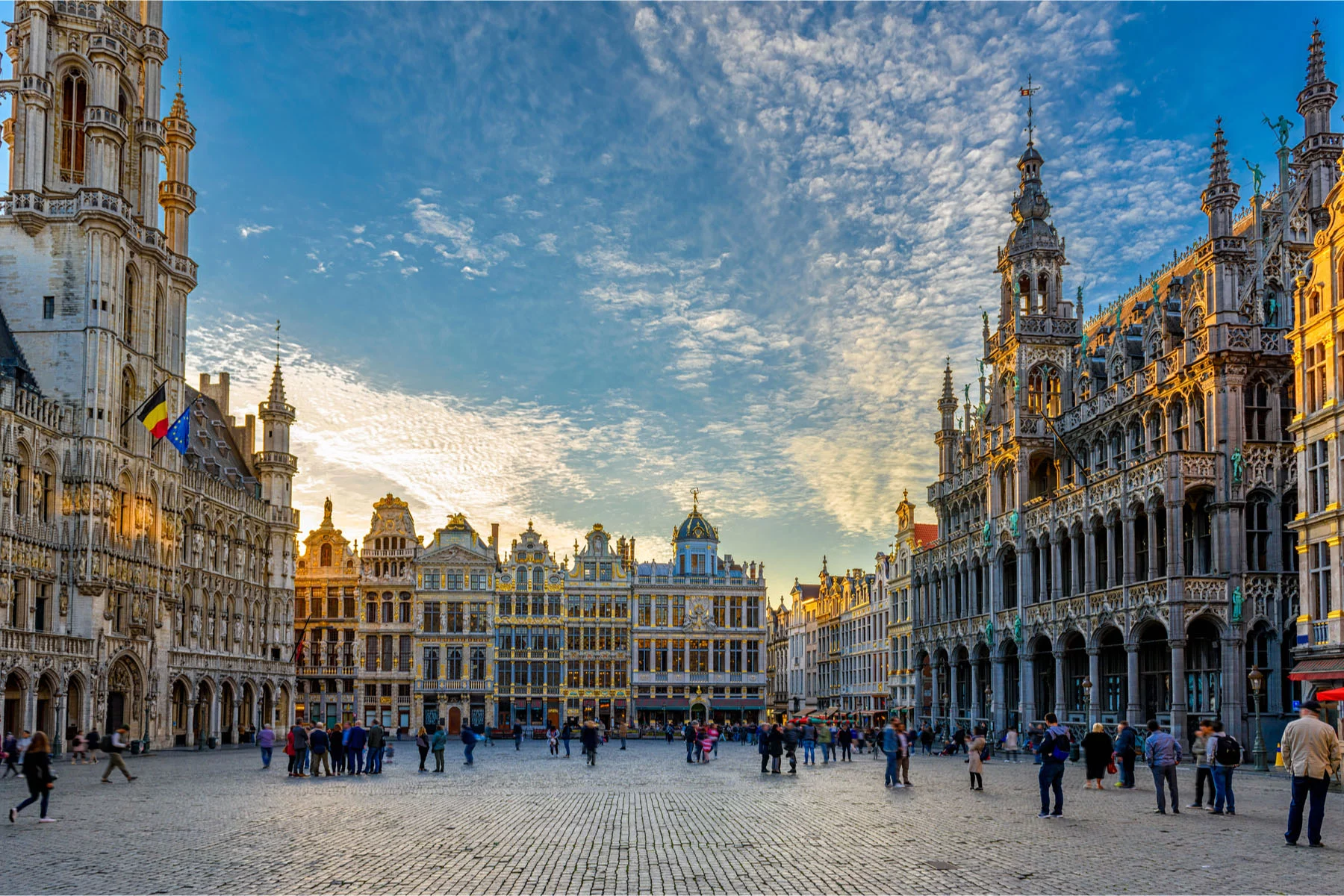
But expat life in Belgium can be wonderful. Public facilities and living standards are of high quality. Crime rates are low in general, especially outside Brussels and Antwerp. The country is home to an outstanding healthcare system with some of the lowest private healthcare costs in the European Union (EU).
Cultural landscape
Culture is easily accessible with numerous museums (many in small towns) and there is a vibrant multilingual arts and theatre scene. The food scene is fantastic, extending far beyond the staples of waffles and moules frites. There are more than 800 restaurants in the Guide Michelin. Over 100 starred establishments are sited within 100km of Brussels alone. There are thousands of craft brews on offer, finely calibrated for every palate.
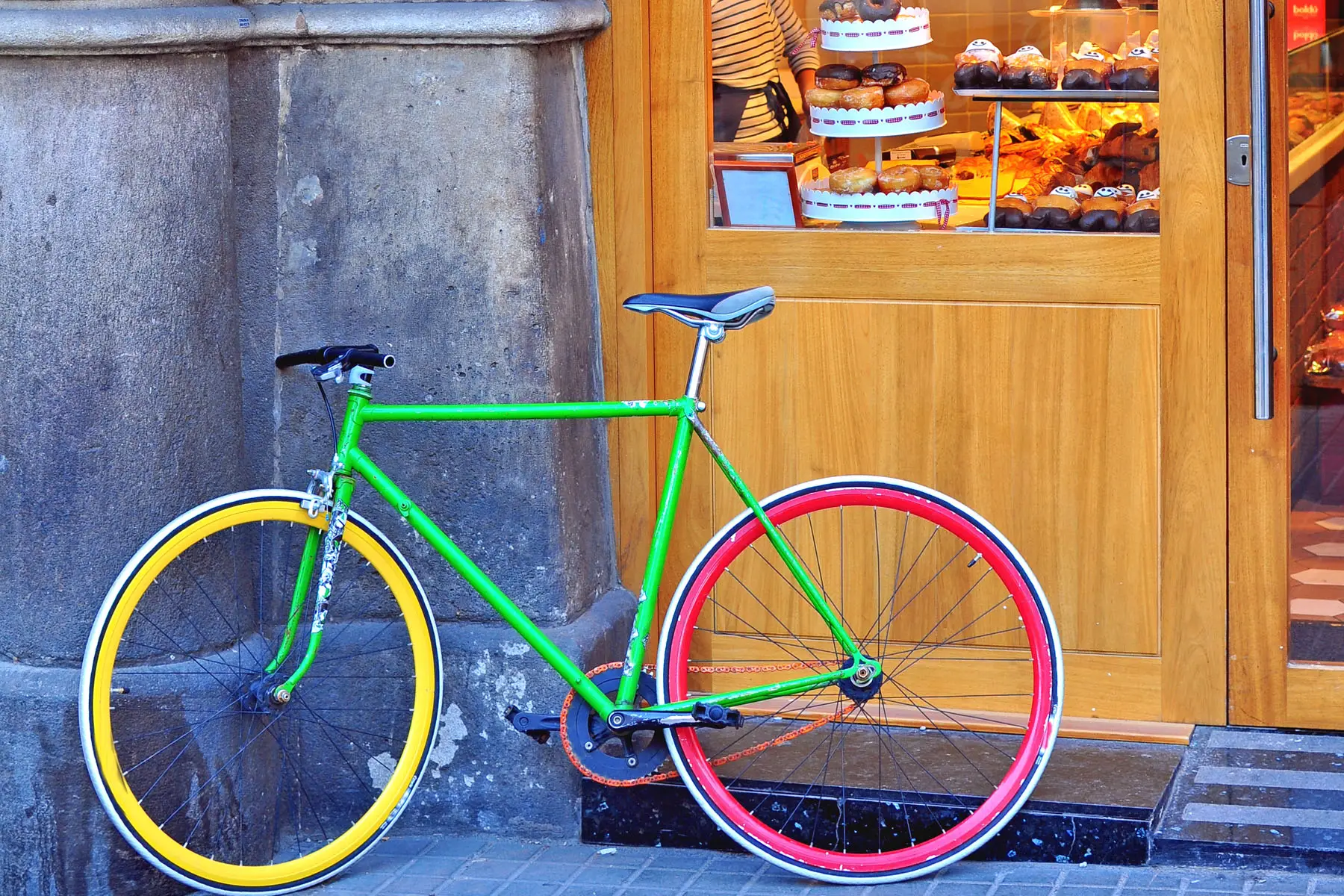
Belgians are sporting crazy, and if football, cycling or tennis make you happy, you’ll always find something to watch or to take part in.
Can I afford the expat life in Belgium?
Expat life involves adjustments of all kinds, not least in terms of the cost of living. Using the United States as a baseline, consumer prices in Belgium are about 7.6% more expensive. Factor in rent, however, and being an expat in Belgium is 7.32% cheaper than living in the US, according to Numbeo’s Cost of Living comparison. Rent prices are about 35% lower than in the US and 28% lower than in the Netherlands. By comparison, rents in France are 2% cheaper.
Belgium’s expat life has become more expensive over the pandemic. This is particularly true in Brussels, home to the largest international community. The Belgian capital placed 53rd in Mercer’s 2021 Cost of City Living ranking, up 25 spots from the previous year.
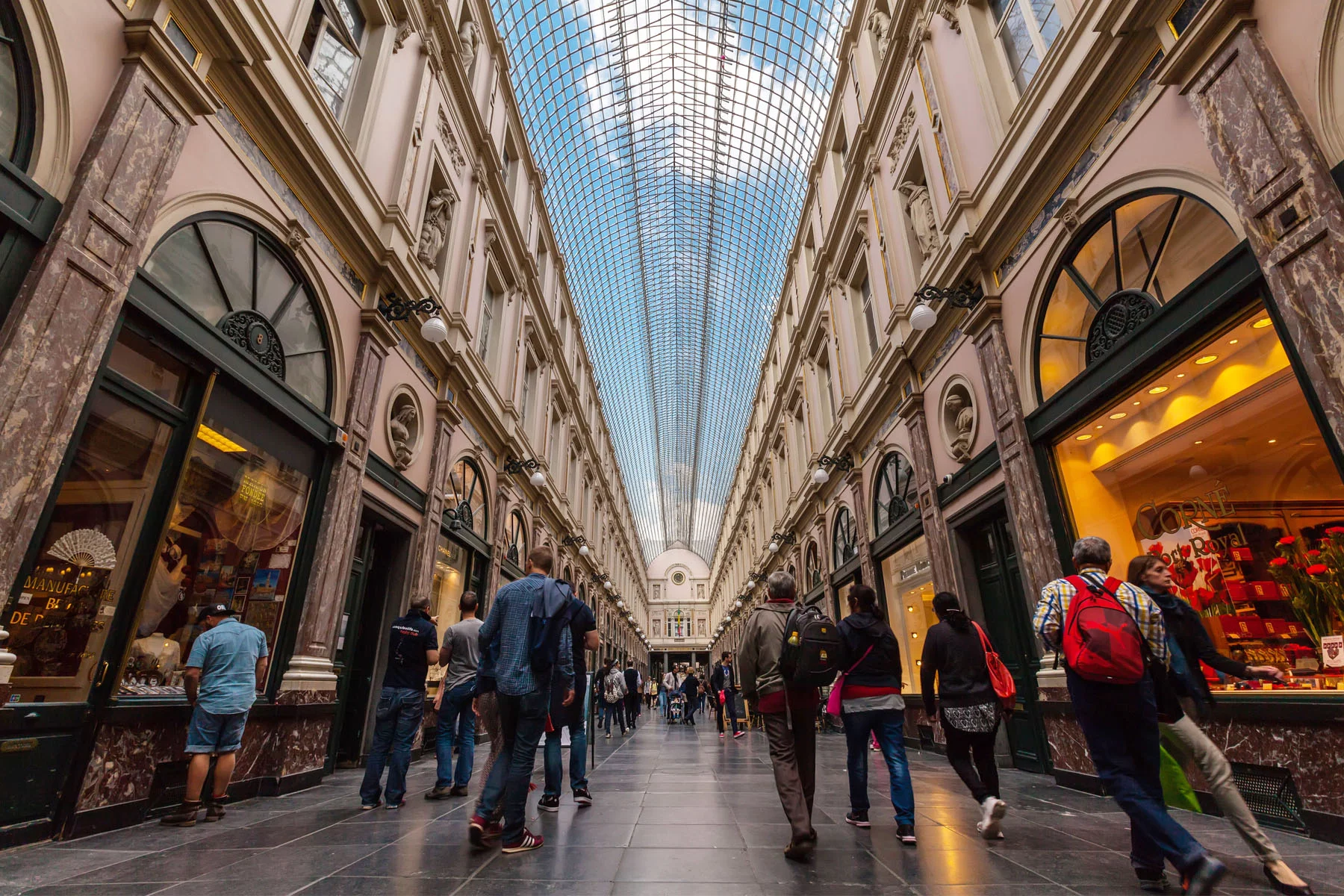
Rent and daily necessities
The average rent in Brussels crossed the €1,000 mark in 2020. Nevertheless, expats can expect a high standard of living in Brussels, with a lower cost of housing and public transport than in neighboring European cities. Of course, expat life in Belgium can be cheaper outside the main cities. If you’ve negotiated some flexibility in terms of working from home, consider options such as Rixensart, Leuven, and Tervuren. All are about half an hour’s drive away from the capital.
While expat life in Belgium isn’t exactly cheap, it’s certainly affordable. That’s in comparison to its Western European neighbors. Expatica research shows that inexpensive meals for one range from €10–€15. Half a liter of commercial beer sets you back around €4. A three-course meal for two at a mid-range restaurant will cost about €60. That goes up to around €100 per head or more in Belgium’s top restaurants.
Expect to pay around €150 per person per month for groceries.
It is worth remembering that higher costs of living come with a high standard of living. Belgium ranks among the top 10 countries in the world for standard of living.
Is it easy to find love in Belgium?
Where you live in Belgium – and whether you prefer to use dating apps or meet people in the old-fashioned ways – are factors in how easily you find love in the flat country. Indeed, you may have to abandon dating apps entirely if you want to get down on one knee to say, ‘Wil je met me trouwen’ to a Flemish person. Many Belgians meet their loved ones through friends or at a bar. Dating apps are where you will find other expats looking for love. This is particularly true in the bigger cities.

Meetups, local expat groups and clubs and even sporting associations are a great way to meet new people.
Same-sex marriage has been legal in Belgium since 2003. In the 2019 Eurobarometer poll, 82% of Belgians said same-sex marriage should be allowed across Europe. Only 17% were opposed.
It is worth noting that expats marrying Belgians may have to fulfill extra conditions to get approval.
What’s it like to work in Belgium?
Expat Belgium life can often center around work. That’s no bad thing in such an international country. Home to the EU’s headquarters, nearly half of Brussels’ residents are estimated to work within the EU administration, or for an allied business.
Belgium’s distinctive composition makes for a diverse, multicultural working environment. Workplaces are multilingual. Many Belgians are proficient in English as well as their own native tongue. Many are also fluent in other European languages. It’s not uncommon to see job advertisements requiring candidates to demonstrate fluency in three languages.
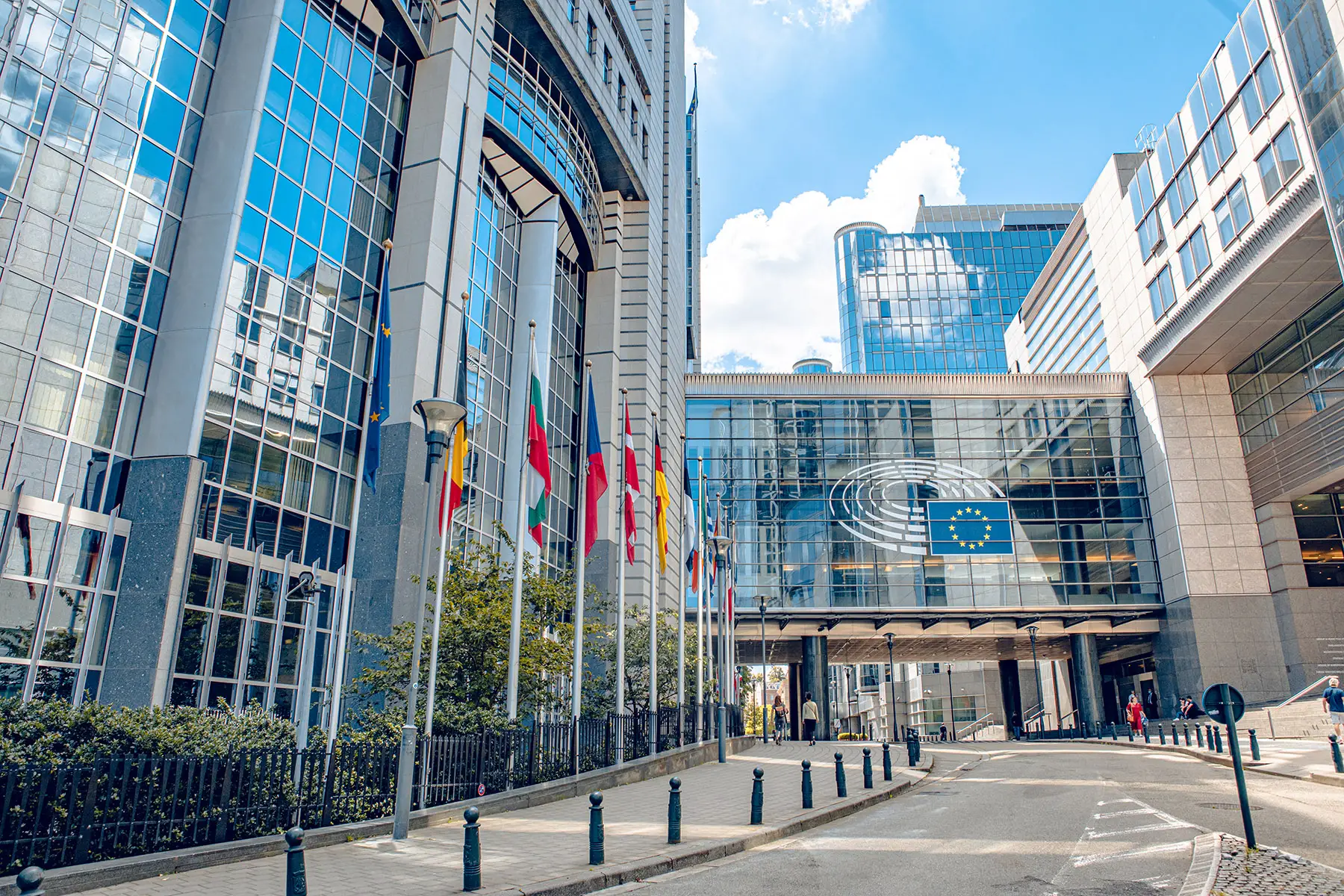
Expats are well represented across the Belgian workforce. About 27% of those working in Brussels are foreign nationals. Nationwide, that figure remains impressive at 14%.
Finding a job
Aside from the EU, Brussels is home to the North Atlantic Treaty Organisation and many multinational companies. Good language skills are an advantage if you are looking for a job.
Outside the EU system, the duality between the French- and Dutch-speaking regions reflects in the workplace. The French hierarchical top-down style is well established. However, Flanders accounts for the lion’s share of national business. So, you’ll often encounter flatter and more open organizations in line with the egalitarian Dutch style. Meetings may often follow the Dutch polder model, where everyone has their say.
Salaries and taxes
Salaries in Belgium are among the highest in Europe. In 2018, the average gross full-time salary was €3,627 per month, according to the national statistics authority. In 2021, the minimum wage in Belgium is €1,625 per month, or about €19,500 over the calendar year.
Belgian tax rates work out to more than 50% for the highest earners (once social security is factored in). High in comparison to an average of 45% in the rest of Europe. As a foreigner working in Belgium, you will generally be liable to pay Belgian taxes and file a tax return. But you will be eligible for a Belgian pension if your employer has paid social security contributions – or if you have done so as a self-employed worker. The pension age is set at 65 years for those retiring in Belgium on or before 31 January 2025. It rises progressively to 67 years if you retire on or after 1 February 2030.
Can I afford to buy a home in Belgium?
We’ve all gained a new appreciation for home spaces over the pandemic. Belgium is no exception. There were 30% more real estate transactions in the first half of 2021 than in the same period a year earlier. That represents the highest number of transactions since 2007.
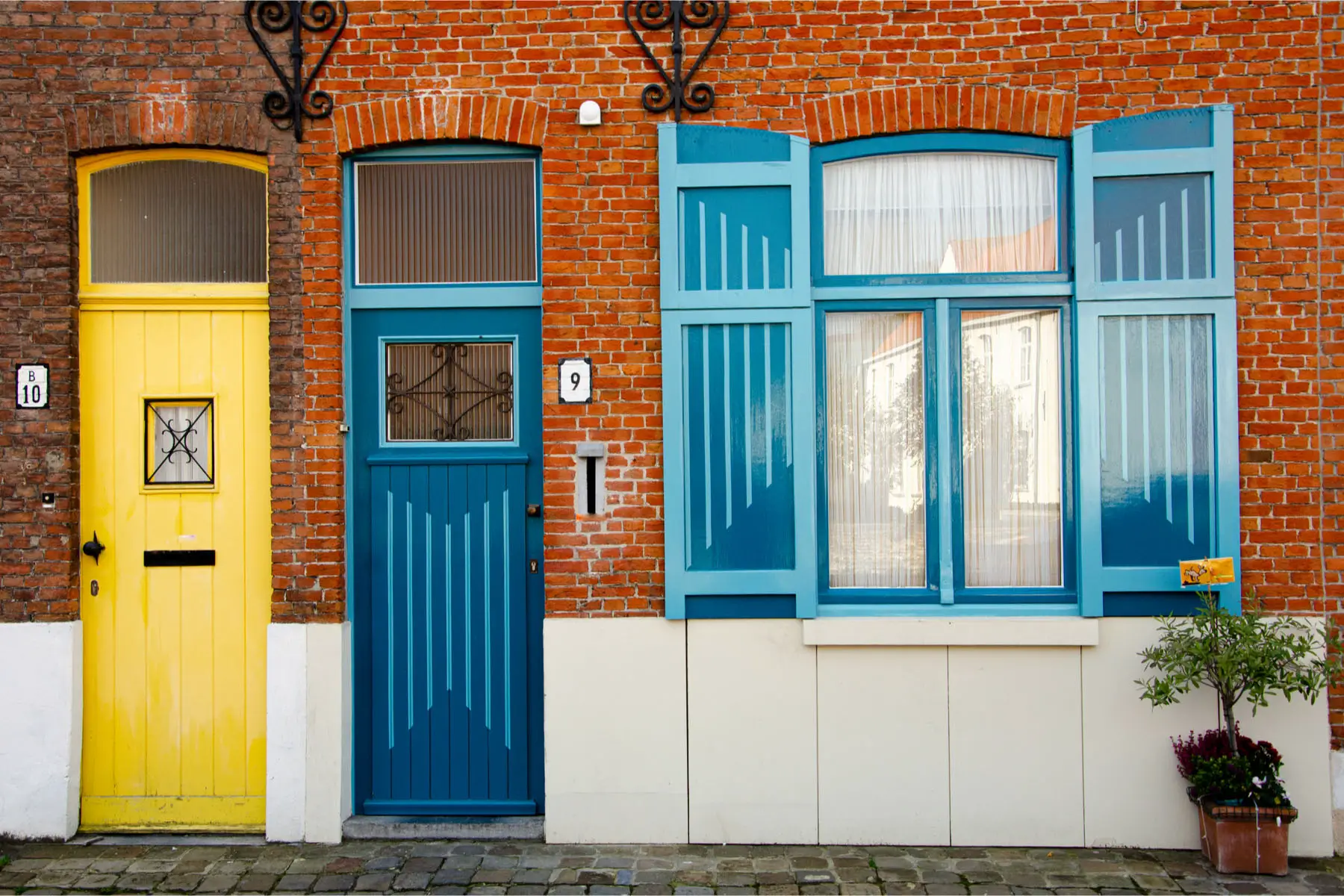
House price inflation averaged around 5% per quarter through the end of March 2021. In 2021, the average national price of a detached house in Belgium was approximately €337,000; semi-detached homes averaged €235,000 and apartments averaged €219,000. Disparities between the three Belgian regions mean a house in the Brussels-Capital Region can cost nearly double the price of a similar property in Flanders, or two-and-a-half times one in Wallonia.
One positive: there are no restrictions on expats buying property in Belgium, or taking out a Belgian mortgage.
What’s it like being a woman in Belgium?
Belgium was one of the last European countries to allow women to vote. Suffrage for the provincial councils and the national parliament only came in 1948. Yet, as of 2021, Belgium is one of only 10 countries worldwide where women enjoy equal legal standing (PDF) to men in all areas, World Bank data shows.
Gender pay gap
A gender gap remains in other areas, particularly at work, the area with the greatest impact on expat Belgium life. The country suffers a gender pay gap of 5.8%, down from 10.2% in 2010. In 2020, Belgium ranked 27th out of 153 countries in the Global Gender Gap Report. The report compares countries across economic participation and opportunity, education, health, and political empowerment for women.

The overall labor force participation rate for women between 20 and 64 years of age is 63%, as compared to 72.3% for men. Women hold only about 30.7% of seats on company boards. In parliament, 41% of elected members are women.
Women’s health and safety
Women enjoy excellent healthcare in Belgium. For the most part, it is affordable and accessible. Expats in Belgium can choose to be treated at both public and private clinics. The former are only accessible to those who pay into the social security system. Overall, English-speaking doctors and gynecologists are relatively common. Those considering having children will find Belgium has a great maternal health system.
On average, women have a life expectancy of 84 years, about five years more than men. However, in 2020 about 3% of women and 2% of men felt their medical care needs remained unmet.
Violence against women remains a concern. Every year, thousands join International Women’s Day protests in Brussels. In fact, the European Institute for Gender Equality (EIGE) estimates that 36% of women in the country have experienced physical and/or sexual violence. This is about 3% higher than in the EU overall. The EIGE notes that in 2013, a short-term barring order was introduced for victims of domestic violence. The perpetrator can be removed from the family home and the residential environment. Obtaining a restraining order is possible. Family housing can be provided for victims of domestic violence.
Useful numbers
- The Dutch-speaking helpline for all forms of violence is 1712.
- French speakers can call Ecoute Violences Conjugales at 0800 30 030.
- Victims of sexual violence who are unable to speak can reach out to SOS Viol on 0800 98 100.
More numbers can be found in our guide to emergency numbers in Belgium.
What’s it like raising kids in Belgium?
From a child’s perspective, Belgium is one of the best places to grow up. A report by the United Nations Children’s Fund (UNICEF) puts Belgium eighth among 41 rich countries. In its favor are high safety, high school enrolment rates, and the opportunity to grow up multilingual.

Yet, one in four Belgian children is overweight. Child poverty remains a concern. Additionally, one in three 15-year-olds struggle to read.
Having a baby
Expats say Belgium is a great place to have a baby. About one in four mothers is an expat. Most pregnancy costs are covered, thanks to a combination of insurance and social welfare. There is a significant support network for pregnant expats in Belgium. Organizations such as the Brussels Childbirth Trust (BCT) offer prenatal and postnatal services for expat parents.
Childcare benefits in Belgium are among the most generous in Europe. Each couple receives a birth allowance of over €1,122 (in 2021) for the first child and €510 for subsequent children. It is worth noting that amounts may differ across the regions.
Educating expat kids in Belgium
Parents will find educating a child in Belgium can be expensive. International schools carry a hefty price tag, with annual fees easily topping €20,000.
Public schools are free, of course, and educational approaches and regulations vary between the Dutch, French, and German language communities. There are also free pre-primary school facilities for children aged 2,5 years and over.
By law, all children aged between six and 18 must attend school. As such, all children living in Belgium must be enrolled within 60 days of being registered at the municipality.
What’s the healthcare situation in Belgium?
Belgium’s healthcare system ranks ninth in the world on the 2021 Health Care Index. It scores highly for healthcare infrastructure, cost, healthcare professionals per capita, quality of medicine available, and government readiness. There are approximately 300 doctors per 100,000 inhabitants in Belgium.
For an expat, Belgium also wins points for the ease of finding English-speaking doctors. You may even find a doctor from your own country. The number of expat doctors in Brussels rose more than 50% between 2014 and 2019.
Be aware that you’ll need to register as a resident, and make social security contributions in Belgium, before you can join a state health insurance scheme and access healthcare. Once you’re registered with the Belgian healthcare system, you can choose your own general practitioner or family doctor (Dutch: huisarts, French: médecin généraliste). Moreover, you can even see different doctors at the same time. You can book an appointment directly with a specialist without a GP’s referral. In this case, your reimbursements may also be different.
Expat health insurance
Access to Belgium’s state healthcare system is for residents only. For new arrivals and digital nomads living there, health insurance from these international providers can offer protection against unexpected medical emergencies:
You can use these policies to bridge coverage gaps after your move and during your stay, but if you plan to live in Belgium long-term, you may need to subscribe to a health insurance plan with a regulated local provider.
What’s the worst thing about expat life in Belgium?
This is expat life in Belgium, so we can’t have just one worst thing. So, have three instead.
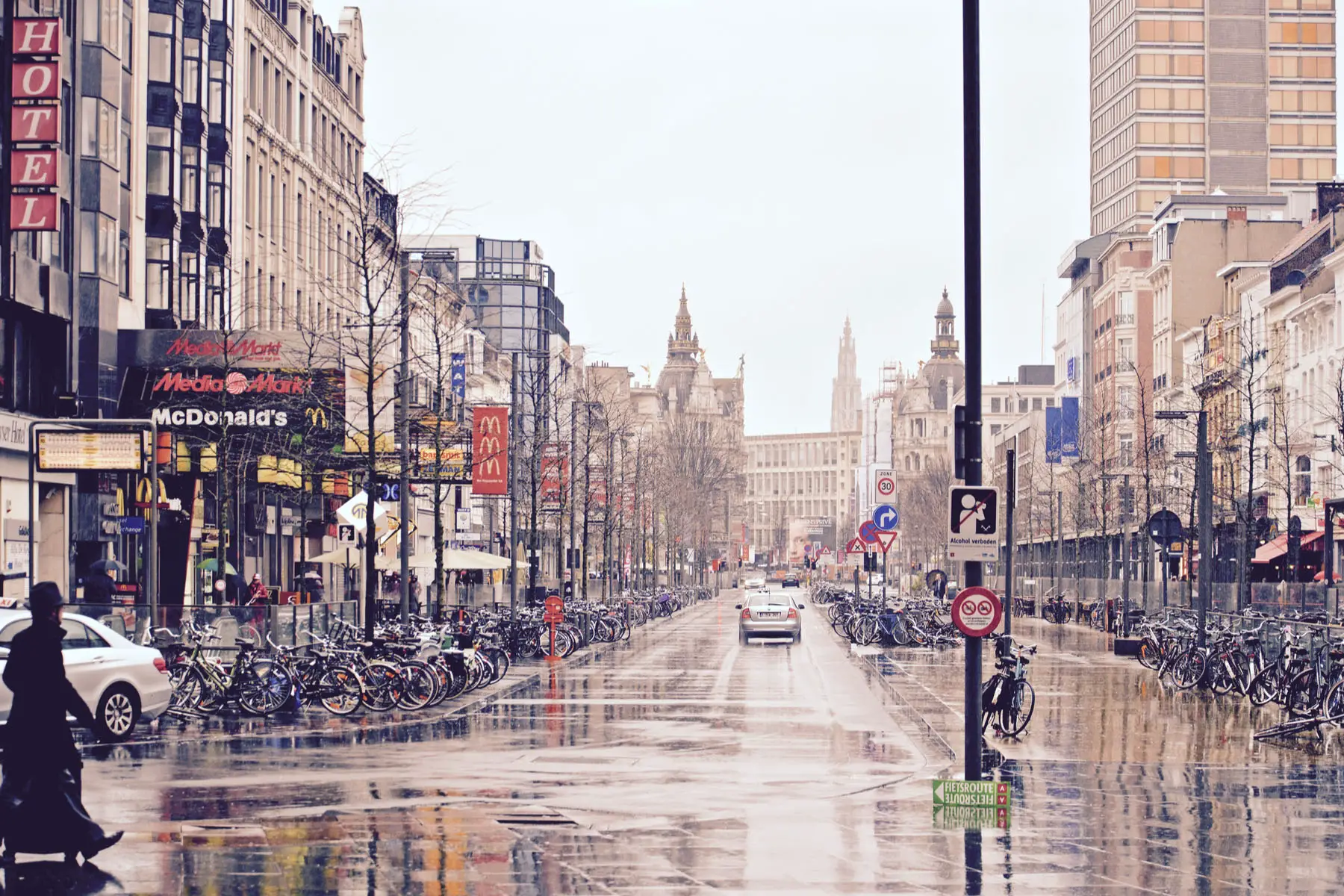
- Everyone complains about the weather in Belgium – even the locals. Spoiler alert: it’s abysmal. The rain is bad enough on its own (Brussels gets an average of 190 rainy days per year), add cold winds and it is no surprise that many expats find it hard to deal with.
- For the expat, Belgium tax rates might seem high – between 25% and 50%. That’s all right if you plan to live in Belgium long enough to become a naturalized citizen and qualify for a pension. However, this will not be on the cards for all expats.
- Perhaps worse than the two points above is interfacing with Belgium’s complex government system. While the state is largely federalized, each of the non-converging regions has its own rules and policies. These cover things like housing, healthcare, and childcare. Expats in Belgium will need to learn to cope with a new way of doing things. If you live in one region of Belgium and work in another, this may have you feeling like you’re living in two countries at once.
What’s the best thing about being an expat in Belgium?
Firstly, despite repeatedly breaking the record for having no national government, everything works in Belgium. Secondly, when you make peace with the weather and taxes, you’ll find Belgium offers an excellent quality of life. Lastly, Belgians work to live, rather than the other way around. In fact, summer holidays are at least four weeks and most Belgian residents will take that break.
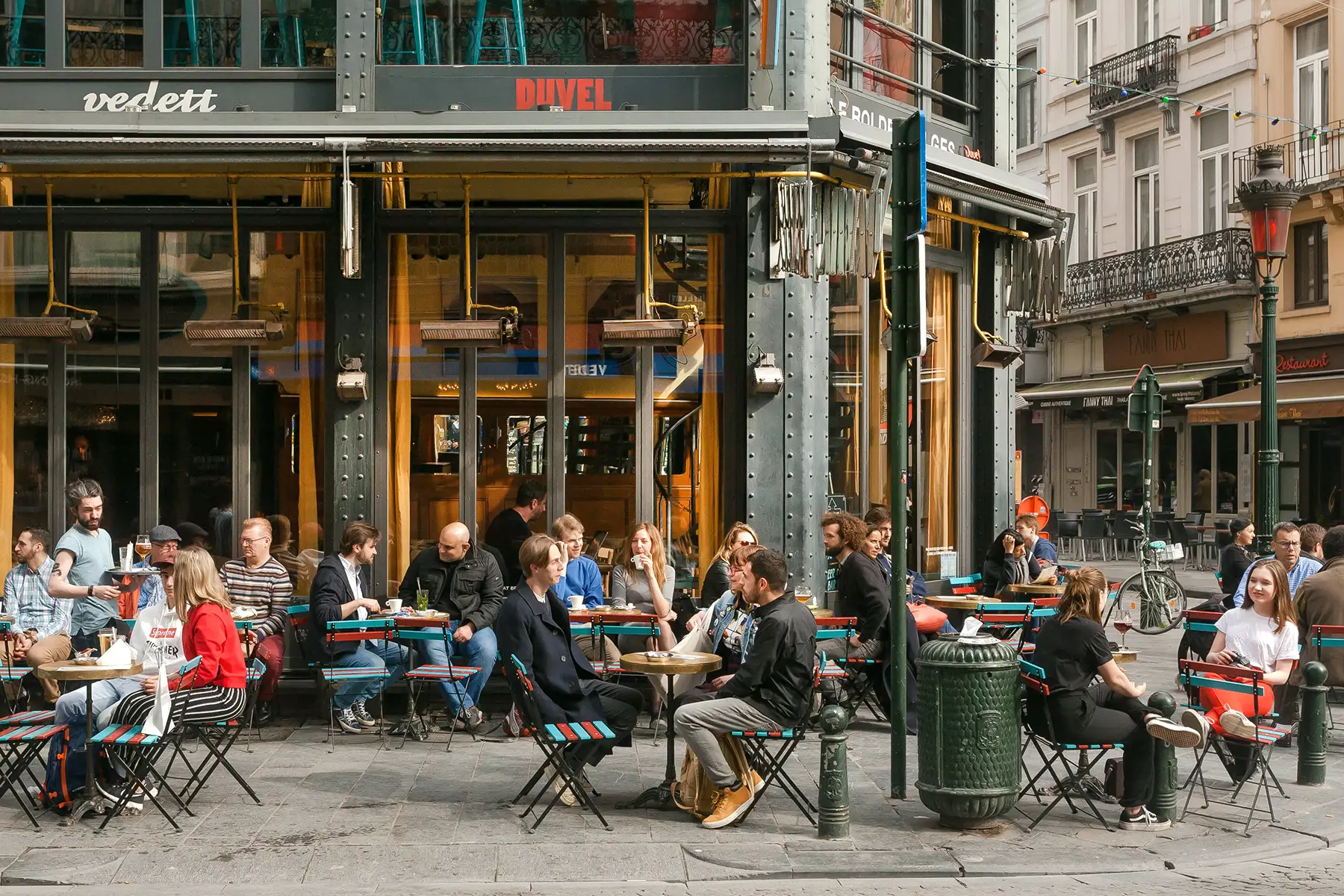
So then, the eating and drinking out is both delicious and affordable. Healthcare is both accessible and of a high quality. And life is underpinned by a strong social security system and employee benefits that also extend to expats.
In short, Belgians have perfected the art of the work-life balance. By combining Dutch industriousness with French joie de vivre. Should you choose to be an expat in Belgium, you too can enjoy this balance.
